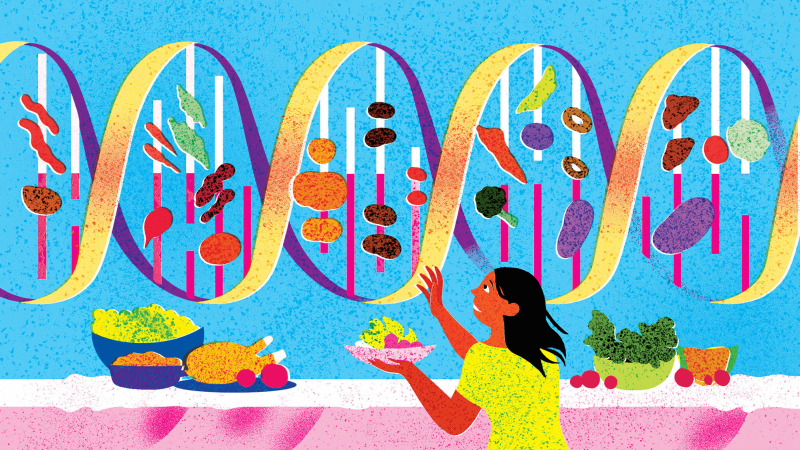Recently several companies have been offering to examine your genome and figure out what you should eat based on your DNA. GenoPalate is a typical one. It promises to tell you:
- Your optimal macronutrient mix to set the foundation for a healthy diet
- What amount of each micronutrient your body may benefit from the most
- Which 100+ foods are the best match for your nutritional needs
- how your body reacts to substances including alcohol, gluten, caffeine, lactose
- How to make decisions at the grocery store, for instance whether to buy Brussels sprouts or broccoli
Under the “Our Science” tab they list 10 studies as examples of those they relied on to make their recommendations. That may look “sciency” and impressive at first glance, but most of the studies were inconclusive, preliminary, or not pertinent to the company’s claims. One thing glaringly missing is any study testing whether people who follow the company’s DNA-based diet recommendations are healthier in any way than people who follow standard evidence-based guidelines for a healthy diet.
Follow the latest news and policy debates on sustainable agriculture, biomedicine, and other ‘disruptive’ innovations. Subscribe to our newsletter.
Some things to keep in mind:
- The foods we eat are complex mixtures of ingredients.
- Genetics is even more complicated.
- Genes are influenced by other genes.
- Genes can be turned on or off by other genes and environmental factors.
- An association between a genetic variant and a disease in a population doesn’t mean an individual with that variant will get that disease.































